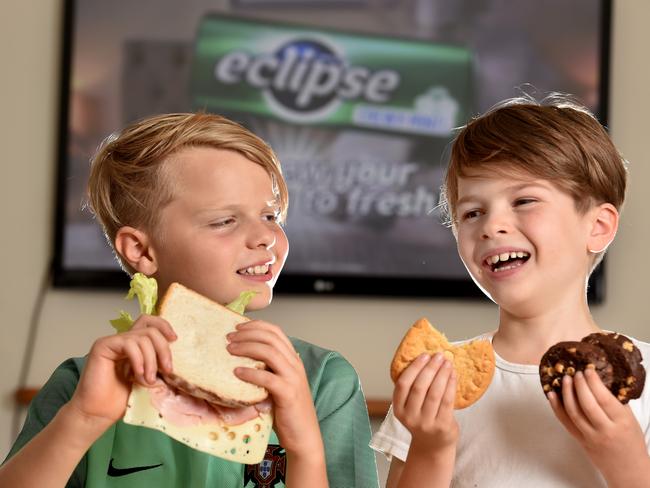Kids stack on extra kilojoules after watching junk food ads: research
CHILDREN eat more straight after watching junk food ads, but they also don’t compensate by eating less later in the day, a world-first study has found.
News
Don't miss out on the headlines from News . Followed categories will be added to My News.
CHILDREN eat more after watching junk food ads, but they also don’t compensate by eating less later in the day, a world-first study has found.
This is the first time researchers have measured whether the influence of food advertising is balanced out over subsequent meals, with population health experts saying the results provide strong evidence to tighten restrictions on unhealthy food advertising to children.
BAD DIETS AFFECT BRAIN BY DECREASING SELF-CONTROL
CUT THE CARBS AND BOOST FATS AND PROTEIN TO AVOID DISEASE
FAMILIES SLUGGED FOR ‘PHANTOM’ CHILDCARE
The University of Wollongong team measured the food consumption of 160 children aged 7-12 years over six days across four school holiday camps in New South Wales.
On three days, they were shown unhealthy food advertising on TV, and in some kids through video games, and on the other days the ads were non-food-related.
On the days they watched junk food ads, children consumed almost an extra 210 kilojoules through snacks and lunch, an energy imbalance that would lead them to excess weight gain over time.

Overweight children were more influenced by the cues. They ate 126 kilojoules more than healthy weight children when they saw ads on TV, and consumed an additional 250 kilojoules when exposed to unhealthy food ads on both TV and in games.
The findings were published in the International Journal of Behavioural Nutrition and Physical Activity. It follows research released last week from the University of Adelaide and the Heart Foundation that found children are exposed to 800 junk food ads each year, if they watch 80 minutes of TV a day.
Lead UOW researcher Jenny Norman said that a key barrier to policy change surrounding unhealthy food marketing to children had been a lack of evidence.
“Economic modelling suggests that limiting food marketing to children would be one of the most cost-effective population-based strategies to reduce the prevalence of childhood obesity,” Ms Norman wrote.
MORE CHILDREN’S HEALTH NEWS:
TENNIS AUSTRALIA TO OFFER CHILDREN HEALTH PROGRAMS
ROYAL CHILDREN’S HOSPITAL POLL FINDS PARENT DENTAL CARE CONFUSION


